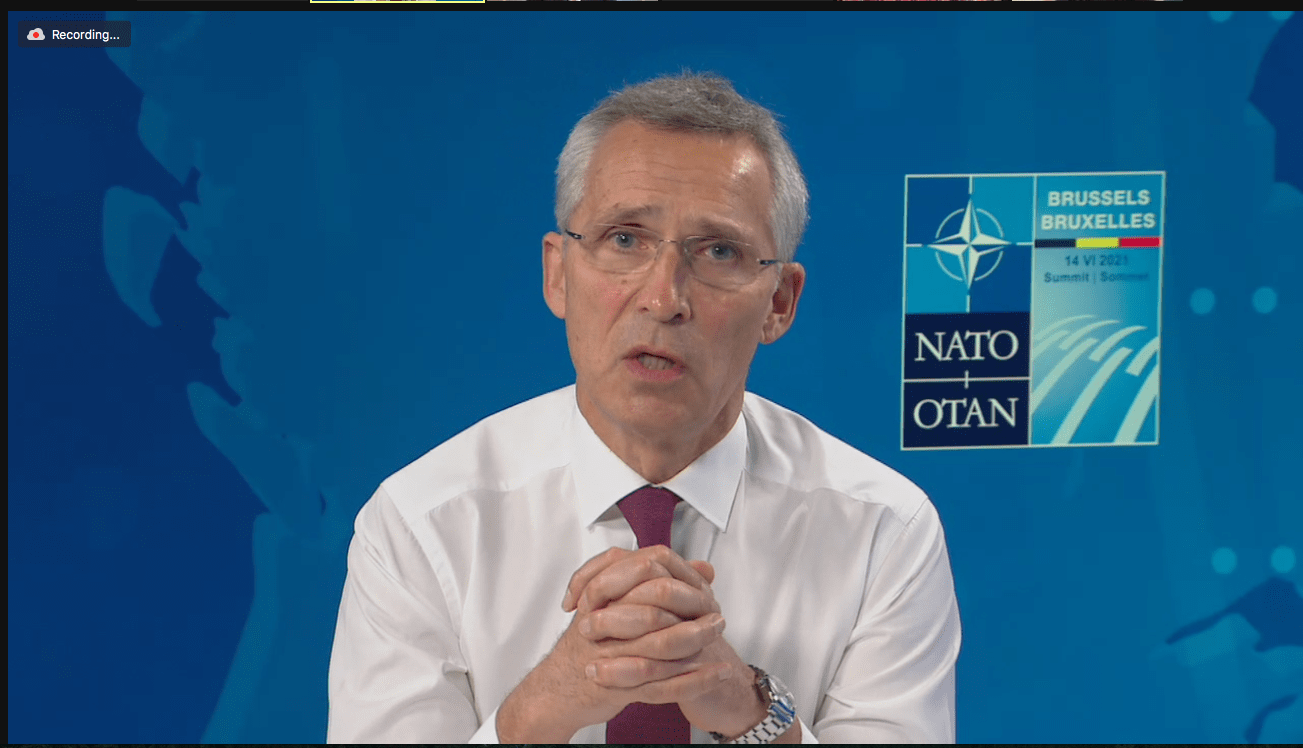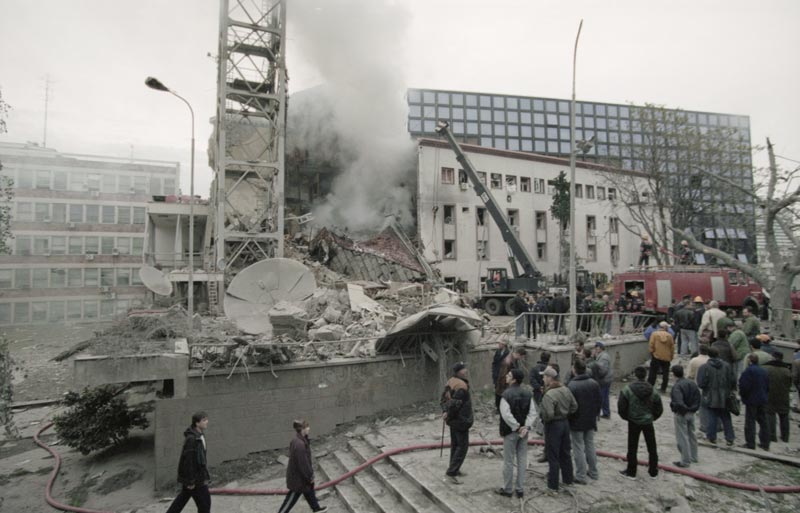The West is divided over its commitment to Ukraine. Italy: is it on the Canossa’s way? The government between revisions and corrections on the NATO topic
by Glauco D’Agostino

“We need to remember that Ukraine has the right for self-defence, they are defending their land, their territory. And, according to international law, the right for self-defence includes the right to strike legitimate military targets outside Ukraine … The time has come for allies to consider whether they should lift some of the restrictions they have put on the use of weapons they have donated to Ukraine.” It is what Stoltenberg said last May 24, echoing the British position on the opportunity for Ukraine to use Western weapons to strike Russian territory.
The Norwegian North Atlantic bureaucrat, now at the end of his mandate (he will leave on October 1st after ten years of little use), was preparing with this “suggestion” the blaze of war enthusiasm of the NATO Parliamentary Assembly, held in Sofia three days afterwards. Exactly like when professional propagandists and provocateurs prepared the streets for the “colour revolutions” of past decades. By a large majority, the members of the rampant consultative body senselessly approved a declaration prescribed by Stoltenberg, which implicates the 32 countries represented in a war outside NATO borders. These irresponsible stances enabled the Kremlin’s response which, through its spokesman Dmitrij Peskov, said that “NATO is in direct conflict with Russia over the conflict in Ukraine”.
“I doubt that the general secretary can take on such a responsibility and speak on behalf of the alliance members. I believe that he has exceeded his powers.” Russian Foreign Minister Sergej Lavrov relieves the disbelief of the dazed exponents of the member countries in the face of the incitement to war by the arrogant man of the moment, who is not the first time to play the role of the fake loon. The United States, Germany, and other alliance members had banned Kiev from using their weapons to strike targets inside Russia. But in recent days, U.S. Secretary of State Antony Blinken, British Foreign Minister David Cameron, and diplomats from the Netherlands, Denmark, Czech Republic, Poland and the Baltics have called to lift the restrictions. The decision is up to each member country, and NATO can unanimously acknowledge it, not impose it on its members. If NATO no longer knows how its institutions operate, it is better to review its functions and direction of move before some reckless warmongers lead to an inevitable world conflict. It is what you risk with imbeciles at the top of the organisation.
Hungarian Prime Minister Orbán, the most daring European leader, seems convinced. He says: “We’ve got to redefine our position within the military alliance, and how Hungary can exist as a NATO member while not participating in NATO actions outside of its territory.”

What are the reactions in Italy, Washington’s most trusted ally on the European scene? “If you want peace, prepare for war,” is the significant comment of Prime Minister Giorgia Meloni, who also, in line with Spain and Germany, recommended caution and considered Stoltenberg’s speech counterproductive. The Roman “pasionaria”, after the exit of the “hawks” Johnson and Draghi, suffers from an American syndrome tormenting her. Given Washington’s uncertainty about the attitude to adopt on international issues (Ukraine, Middle East, Asia-Pacific), Giorgia is forced to chase developments from the White House, even without having time to assimilate the instructions to follow. So in the “Stoltenberg case”, the French-led Europe, the “Israeli question”, the recognition of Palestine, the genocide taking place in Gaza, and the International Criminal Court’s respectability. But she, with thick skin, continues to be resilient to any possible gradual deviation from the current levelling, a margin giving decorum and respect to Italian positions in foreign policy.
The comments by her government allies are more realistic and diplomatic. “We are an integral part of NATO, but every decision must be made collectively,” says Foreign Minister Antonio Tajani after a year and a half of Atlantic anti-Russian echoes. “There is no NATO Secretary or one Nation deciding the line for all the others,” says the Minister of Defense Guido Crosetto after a year and a half of “playing war” in Ukraine with related commitment in favour of the autocratic regime in Kiev. But he adds: “We cannot attack. We can only defend ourselves.” Deputy Prime Minister Matteo Salvini is drastic: “Stoltenberg should either retract his statement, apologise, or resign,” he says after a year and a half of undigested submission to the White House for subordination to the “American” dictates of government. And he adds: “If they want to go and fight in Ukraine, let Stoltenberg, Emmanuel Macron and all the bombers who want war go there.” The reference to the French President follows the agreement obtained by Kiev to allow French military instructors to enter Ukraine.
“Today’s words from the NATO Secretary General signal a further military escalation. We are on the brink of World War III,” thunders Giuseppe Conte, the most authoritative pacifist exponent of the opposition and, in truth, always critical of the War policy as the only means of resolving international disputes.
If the stances of the left-wing Democratic Party, which does not dare to embrace the pacifist Franciscan positions or those in Hermann Hesse’s wake, float in ambiguity, the instigating ones of Lorenzo Cesa, Secretary of the Christian-democratic Union of the Centre, reveal the interpretation of his religious spirit: “Italy, like all the other NATO countries, must respect its commitments to send aid and weapons through bilateral agreements. This should be done not only by Italy but also by all the other countries”. Of course, his statements perhaps reflect too much his institutional role as President of the Italian Delegation to the NATO Parliamentary Assembly. But realism is not incompatible with timely criticism of an out-of-control Secretary General. After all, but an official…

Effects of a NATO bombing in Belgrade, Europe, 1999



